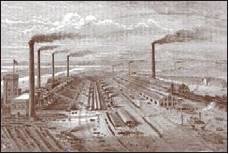The extra mile
the editor talks with you
My father was an extra miler. At age 15, he walked from south Georgia to upstate South Carolina for a job sweeping floors and selling …
This item is available in full to subscribers.
Subscribe to continue reading. Already a subscriber? Sign in
Get 50% of all subscriptions for a limited time. Subscribe today.
Please log in to continueNeed an account?
|
The extra mile
the editor talks with you
My father was an extra miler. At age 15, he walked from south Georgia to upstate South Carolina for a job sweeping floors and selling furniture. Due to his attitude, he became the manager of both of his boss’s furniture stores. He was willing to go the extra mile. After he met my mother, he borrowed money to go back to school, worked nights, went to classes and became the professional man he had long dreamed of becoming. In thinking of him, I feel like a slacker. I never worked as hard as he did, even in cleaning Army grease traps on KP.
I thought about him when I read Napoleon Hill’s account of Charles M. Schwab, the man who engineered the sale of Andrew Carnegie’s steel empire. Carnegie started out as a poor boy in Scotland, came to America and a menial job in the steel industry. He rose to join the country’s wealthiest men. Carnegie developed more successful leaders of industry than any other American industrialist of his time. Most of them came up from the ranks of ordinary day laborers. Many accumulated personal fortunes of far more than they could have acquired without Carnegie’s guidance. The first test Carnegie applied to his workers was to what extent were they willing to go the extra mile. Charles Schwab captured Carnegie’s attention while working as a day laborer. Carnegie noted that Schwab always performed more and better than what he was paid. He did it in a pleasing manner that made him popular with others. He was promoted again and again until he was president of the United States Steel Corporation at a salary of $75,000 a year, worth about $2.3 million today.
Not through all the ingenuity or schemes men use to get something for nothing could Schwab, the day laborer, have earned as much as $2.3 million during his entire lifetime if he had not willingly gone the extra mile, Napoleon Hill wrote. On some occasions Carnegie not only paid Schwab’s generous salary but gave him as much as $1 million as a bonus. When asked why he gave Schwab bonuses greater than his salary, Carnegie replied in words that all of us might ponder. “His salary was for work he performed,” Carnegie said. “The bonus was for his willingness to go the extra mile, setting a fine example for his fellow workers.” Think of that. A salary of $75,000 a year to a man who started as a day laborer, and a bonus more than 10 times that for a willingness to do more than he was paid for.
Of all the extra miles my father walked that I most admired was the way he handled our family’s greatest crisis. I was 9, my sister 6, when deep depression dragged our mother down. Over the next 3 years she was institutionalized. Our father hired a succession of housekeepers to look after my sister and me. Due to the incorrigible behavior of his hellion children, even the strongest housekeepers lasted only a few weeks. I think my mother’s parents blamed him for her depression and offered our father little assistance. Through all of this, he stuck by our mother, driving the 3 of us to Columbia, a 2-hour drive one way back then, to see her at the sanitarium. Our father’s example of patience, hope and love has inspired me throughout life.
Like what you just read?
Inspire yourself or a loved one with a personally-autographed copy of Your Life’s Great Purpose by Jerry Bellune for only $20. Call 359-7633.
Other items that may interest you










Comments
No comments on this item Please log in to comment by clicking here